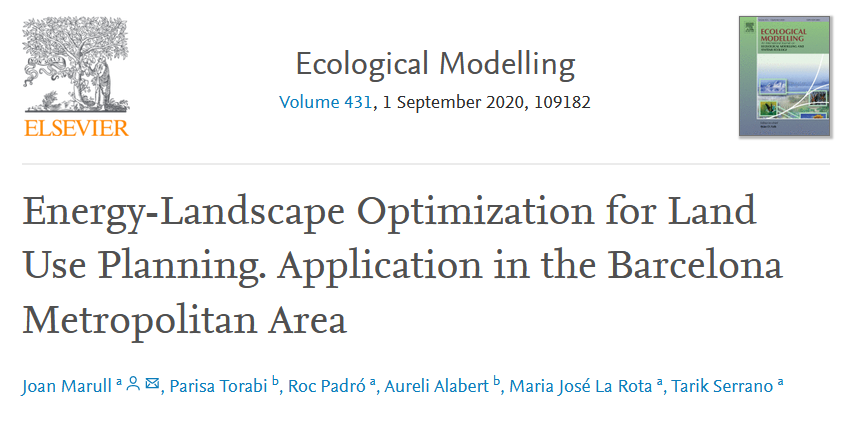Marull J.; Torabi P.; Padró R. et al. 2020. “Energy-Landscape Optimization for land use planning. Application in the Barcelona metropolitan area”. Ecological Modelling 431.
Abstract
Rapid population growth and urban expansion in metropolitan areas have led to a dramatic increase in food demand. In most cases, urban sprawl occurs in unplanned ways, forcing peri-urban agriculture to adopt detrimental practices for biodiversity conservation and metabolic efficiency (i.e. landscape homogenization and dependence on non-renewable external inputs), facing the food-biodiversity dilemma. In order to ameliorate these negative effects over the metropolitan socioecological system, researchers have focused on developing comprehensive indicators to support sustainable urban expansion in metropolitan areas. In this paper, we use these indicators to develop an Energy-Landscape Optimization (E-LO), a nonlinear model designed for land use planning by means of considering biophysical constraints. Then, we test the model in a representative Mediterranean bio-cultural landscape in the Barcelona metropolitan area (Spain). The E-LO results allow us to propose different land use configurations for both conventional and organic agriculture, taking into account the associated socio-metabolic balances and the related landscape functional structures, with the aim to meet different societal objectives. We have fruitfully tested three settings: i) to increase conditions to host farm associated biodiversity, ii) to increase agricultural production, and iii) to minimize dependence on non-renewable external inputs. According to these socioecological objectives, we have obtained the best landscape-metabolism integration, which is a useful methodology for sustainable land use policy. This socioecological perspective is necessary for the new paradigm on agroecosystem management and landscape planning, and can help advancing towards functional green infrastructures in metropolitan areas, especially in the climate change and agroecological transition global context.

